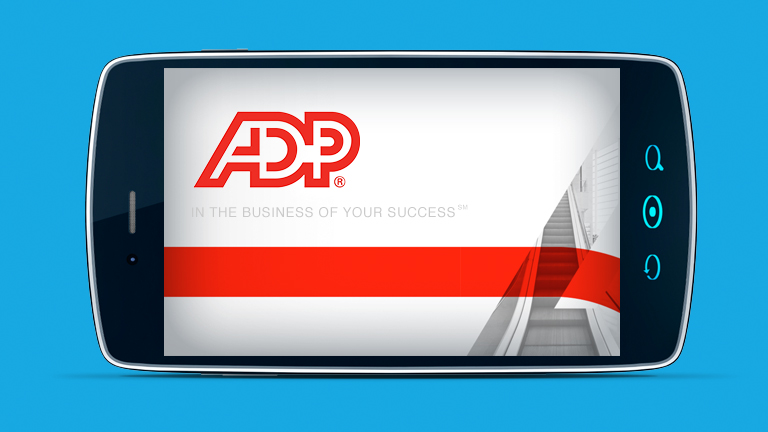West Kowloon Cultural District Authority
“We want to give each visitor the depth of connection they want. To do that, we need one CRM system that effectively controls the customer data throughout the entire journey.”

West Kowloon Cultural District brings art to the people with Salesforce
The West Kowloon Cultural District Authority (WKCDA) is building a city within a city. It’s an ambitious project that is currently being constructed on a massive scale on 40 acres of reclaimed harbour-front land in West Kowloon, Hong Kong. Around 23 acres of open public space will join an enormous range of indoor and outdoor performance spaces, theatres, museums, galleries and dining and retail venues.
The District’s first major venue – the Xiqu Centre – is due to officially open in early 2019, with around 15 more cultural venues to follow in the coming years, including the M+ Museum of Contemporary Visual Culture, and the Hong Kong Palace Museum.
“Hong Kong is well known as a financial centre, but it's not necessarily known as a cultural centre, even though we have a long, rich history of art and culture,” says Kingsley Jayasekera, Director of Marketing and Customer Experience at WKCDA. “Creating this District is recognition that the creative industries matter, and it has been very much designed to enrich people's lives in Hong Kong.”
Jayasekera says the expansive District aims to strike a delicate balance between appealing to local residents and becoming an international tourism destination.
“This place has to be somewhere that local people feel ownership of and enjoy. At the same time, we also recognise that Hong Kong is a tourist destination, so we want somewhere an international visitor can come to experience something that feels like they are in Hong Kong.”
Jayasekera also explains that the WKCDA aims to attract people across all demographics to the vibrant district – from knowledgeable art lovers to young people keen to explore new cultural experiences.
“We recognise people have various interests and are at different life stages,” he says. “For example, someone might be an avid lover of contemporary theatre, but also a parent who wants to take their children to see family shows. We understand that people are much more complex than when they're viewed through a traditional customer lens. We want to reach out to all people.”
Mission possible with Salesforce
It’s an incredibly difficult mission, and one that the WKCDA is turning to technology to accomplish. It begins, says Jayasekera, with an overarching commitment to customer segmentation.
“People will come for a real experience, and part of how we manage that comes down to how we segment our audiences and how we communicate with them,” he says. “If you’re a local resident, we need to be able to give you the depth of connection you want, and if you're a tourist we need to give you the information you need. To do that, we need one CRM system that effectively controls the customer data throughout the entire journey.”
That’s one reason why initial plans to implement a new district-wide content management system were shelved in favour of a Salesforce deployment that will bring together customer data and interactions across a wide range of touch points to create a true 360-degree view of the customer.
“Arts and cultural venues traditionally start with websites and ticketing systems and add on CRM functionality to allow them to do things like fundraising,” Jayasekera explains. “They work on the premise that you become a customer when you buy a ticket, but before that you're unknown. We believe the customer journey begins a lot earlier than that.”
Salesforce, on the other hand, will provide a single sign-on for visitors across the district, which will give Jayasekera and his team “a complete view of the customer at the time of purchase and provide a valuable tool to drive people up the engagement ladder as their identity created for something like wi-fi usage can be later used to buy tickets.”
“We plan on using Salesforce to deliver a one-of-a-kind, personalised cultural experience to our customers.”
One CRM to enrich all interactions
Jayasekera knows that a customer may interact with the District on a number of occasions before they become a paid ticketholder. These interactions represent an opportunity to gather the customer data Jayasekera and his team needs to create personalised experiences.
To do so, they need to manage complex, rich and deep content across many artistic events that vary from the most approachable free family activities to challenging experimental theatre to very academic talks and seminars.
“We must also work across multiple languages (Traditional Chinese, Simplified Chinese and English), and across a border between Hong Kong and the rest of the Greater Bay Area on the mainland with different social media, payment systems and currency,” he says.
Gloria Wong, Manager of Digital Communications at WKCDA, points out that as the number of journeys that different customers can experience at the District is quite diverse, “we need the capacity to deal with a range of customers and customer expectations whether they are attending theatres and museums, visiting retail and dining venues, going to offices, or simply enjoying open space. “It’s a challenging and ambitious project, but we plan on using Salesforce to deliver a one-of-a-kind, personalised cultural experience to our customers.
“While other organisations might have multiple systems serving different functions, we have positioned Salesforce as the centralised system. Login, registration, ticketing, wi-fi usage, membership, event registration, enquiry, and subscription will all happen within or interface with Salesforce on a real-time basis. This means we can react to the data easily and quickly to achieve better and more precise segmentation, and ultimately drive targeted marketing campaigns through email, website, advertisements or apps.”
Early results promise future success
While it’s still early days in the District’s development, Wong and her team are already seeing strong results from the Salesforce integration, including increases to the company’s 110,000-email subscriber base.
“We have seen a higher number of email subscriptions after integrating Salesforce with our website, social media lead capture and membership form,” she says. “We now have faster case capture and more effective triage with relevant answers provided by respective department users. And with Marketing Cloud, we’re seeing a quicker turnaround time for setting up a campaign, and it’s much easier to do more precise segmentation after integrating different sources of data, customer preferences and transactions into one system.”
Wong has also seen higher open and deliverability rates since deploying Marketing Cloud, and encouraging increases to the membership renewal rate.
Looking to the future, Jayasekera hopes to amplify these results with the adoption of developing technology such as chatbots and augmented reality that will further personalise the customer experience.
“That's very important because when it comes to arts and culture, people are looking for a very personal relationship,” he says. “We want to bring people closer to the creativity by delivering information to them that’s relevant, timely and exciting.”
Keep exploring stories like this one.
Questions? We’ll put you on the right path.
Ask about Salesforce products, pricing, implementation, or anything else — our highly trained reps are standing by, ready to help.








